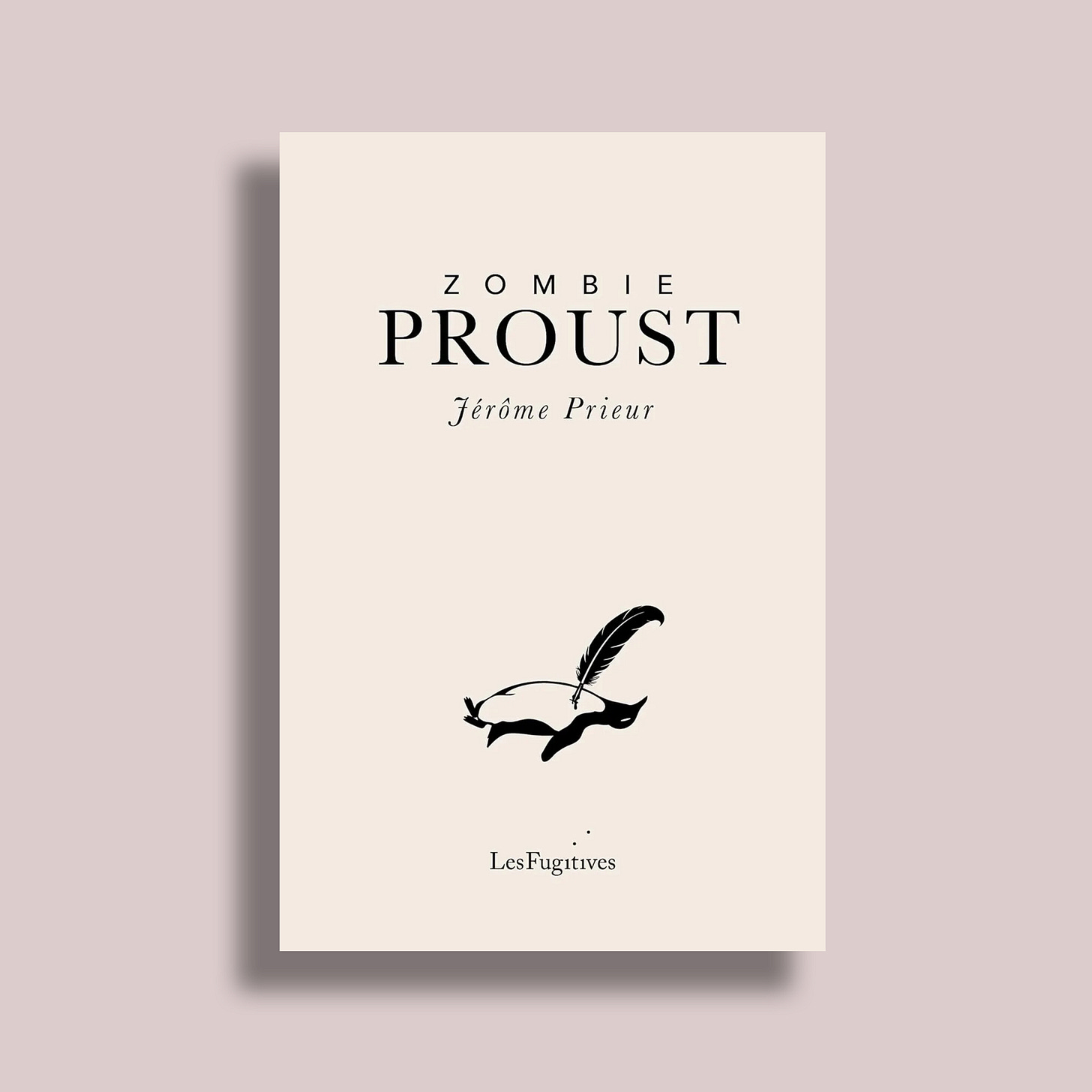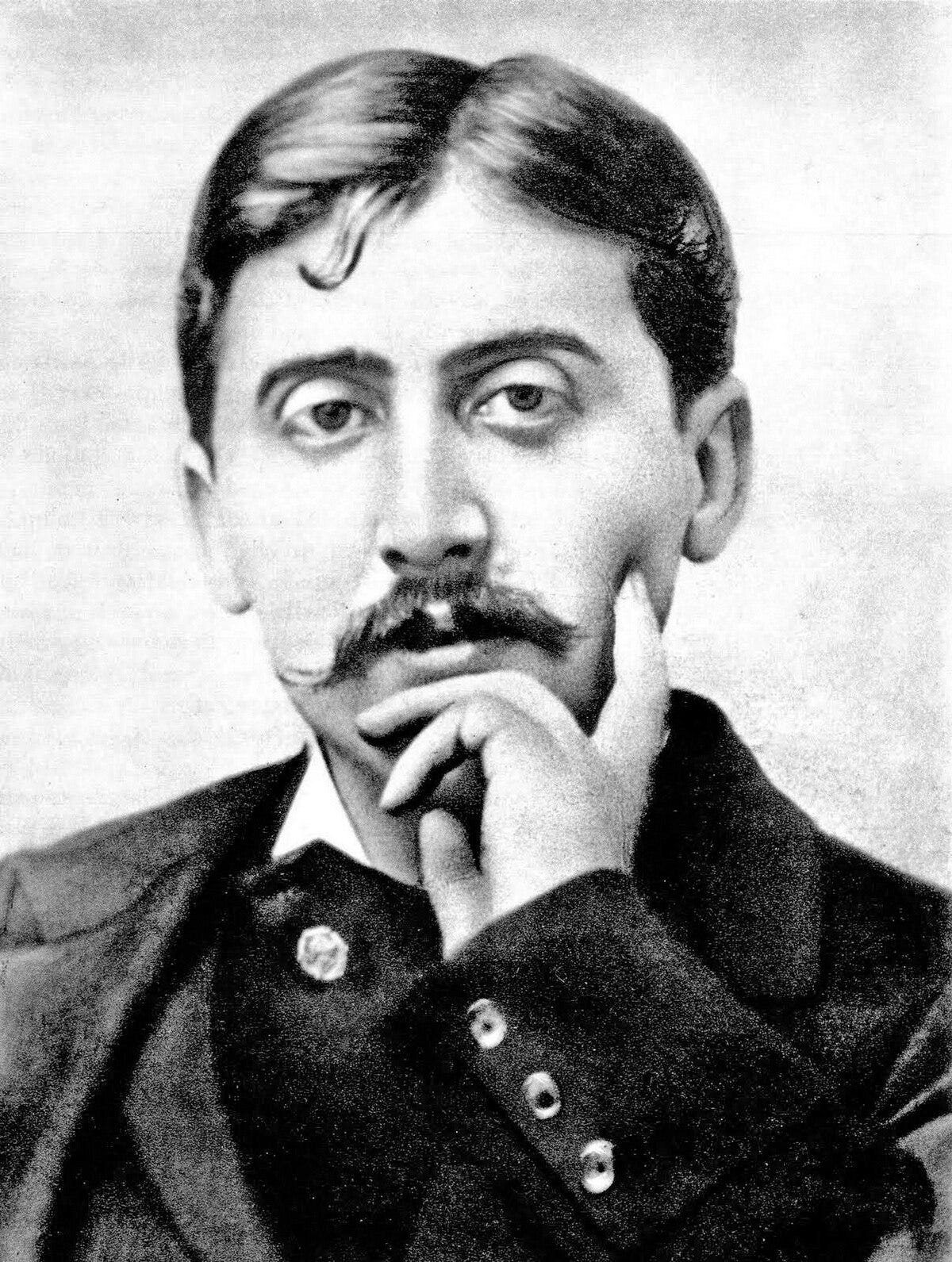Zombie Proust - The Resurrection of a Literary Enigma
Book Review: Zombie Proust by Jérôme Prieur. Published by Les Fugitives and translated into English by Nancy Kline.
“Remembrance of things past is not necessarily the remembrance of things as they were.” - Marcel Proust
Marcel Proust is widely recognised as one of France’s most influential writers, he was an elusive visionary who dedicated his life to his work. His most prominent novel, À la recherche du temps perdu (In Search of Lost Time), is one of the great masterpieces of contemporary literature and is considered by many to be Proust’s magnum opus.
À la recherche du temps perdu, published in seven volumes between 1913 and 1927 and spanning over 1.2 million words, is widely regarded as one of the greatest masterpieces of modern literature. Exploring memory, time, and the meaning of life, Proust ultimately concludes that art, not love or status, gives life its true value. Indeed, one of his most famous quotes suggests that art and beauty are everywhere and all around us, if one only takes the time to look from a new perspective: “The real voyage of discovery consists not in seeking new landscapes, but in having new eyes.” This philosophy arguably helped ignite a literary movement, inspiring generations of writers to see the world, and literature with new eyes.
Proust’s writing is adored by many who dedicate the time to read it and has inspired many beloved modernist writers, including Virginia Woolf, James Joyce, and Samuel Beckett. His work remains a subject of study, adaptation, and admiration for its rich complexity and deep understanding of the human experience. Yet, despite being one of the most influential writers of his era, there is little record of who Proust truly was as a person.
Who was Proust the man, not just the writer? What was it like to be under his gaze? What made him laugh? What tethered him so closely to his mother? And why did he retreat to a cork-lined room, writing through the night and sleeping by day?
Using the little evidence available, many have sought to uncover the truth about the man who captured the imagination of readers from every corner of the globe. Zombie Proust is Jérôme Prieur’s humble attempt to reanimate the enigma himself, and he describes his quest as “bringing back to life the invisible being, recalling his image as one summons a ghost.”1
In Zombie Proust, recently republished in English by Les Fugitives and translated from French by Nancy Kline, Jérôme Prieur pieces together fragments of almost-lost information, and glimpses of minute details about the mysterious writer, in order to paint a life-like literary portrait of the man who was once mourned by the whole of Paris when he passed, yet genuinely known by only a small handful of people.
In search of information, Prieur visits key places from Proust’s life, beginning with the writer’s home, more specifically, his bedroom:
“The bedroom walls are covered in cork, but the spaces between the windows are lined with simple ornamental wallpaper. The idea came from his friend Anna de Noailles. She had recommended this arrangement to make Proust’s den airtight, to seal it off from the world.”2
In these early chapters, we explore the physical space in which Proust conducted much of his writing, but Prieur’s investigation delves beyond the physical. He concludes that he must also go deeper, into the mind and emotional life of the writer.
Prieur next turns to the memoir of Céleste Albaret, Proust’s housekeeper, maid, nurse, paid companion, possibly even a substitute mother, and arguably his closest confidante to describe the writer’s penetrating gaze:
“It seems he saw everything without you being aware of it… you were searched out by a spotlight, seen through, radiographed, ‘X-rayed’. There was something unique about his eyes, like a ‘recording device’, which let nothing escape. A thousand-faceted gaze like that of a fly, the gaze of a magnifying glass, enlarging everything it focuses on.”3
Here, we gain a revealing glimpse into how Proust perceived and processed the world. Every gesture, scent, or glance was a potential source of insight or inspiration. He was resolutely determined to uncover beauty in the unnoticed details of everyday life, and he became renowned for this trait in his novels. He could spend pages immersing himself in the depth of a single moment, sound, face, or smell. Moments fleeting and seemingly trivial to the untrained eye became, in Proust’s vision, rich with significance.
Some of the most tender and fascinating moments in Zombie Proust are the chapters which explore Proust’s complex relationship with his mother. Proust’s craving for her attention is well documented. As a child, he longed to be the sole focus of her gaze, even wishing to be an only child to secure her undivided affection. In the chapter The Image of His Mother, Prieur notes:
“He is the spitting image of his mother. He has her eyes, people say tenderly… He looks at the world through her eyes, he makes her see what she never tried to see, what she never wanted to know. Proust is said to have confessed that with his mother’s death he had been tempted to let himself die. It was the consequences of his act, the prospect of committing - more than a crime - a matricide that changed his mind: for along with him, his memory of her would have perished.”4
The idea that his mother lives through him, and that things, places, people are connected across time, is a theme that Proust regularly explores in his writing. Prieur points to the fact that Proust’s relationship with his mother is one of the key influences on his work. Indeed, Zombie Proust is prefaced by a quote from the writer’s Found Texts:
“The present writes out words before us, but what our future will make of them we cannot know until later. And a chain extends through all our existence linking what is already dead to what is full of life.”5
Perhaps he felt a responsibility to continue something of hers, to preserve her memory through his own existence. Prieur beautifully notes:
“Press your ear to the wall, blow off the accumulated dust, scratch away the sands of time: antiquity is right here, as if it all happened yesterday, suspended layer by layer in the ether.”6
In this extract, Prieur suggests that Proust believed that what is gone doesn’t truly leave us, that the past is very much alive in the present, and it is this sense of continuity, of carrying on his mother’s life, that shapes his abstract perception of time as non-linear, a theme he returned to again and again.
Zombie Proust draws to a close as we explore the writer’s decline into himself, desperately attempting to complete his novel. “He scarcely sees his friends anymore,” notes Prieur, as he chronologically documents the last months of Proust’s life, as though he were watching his demise in first person:
“Years ago he canceled his telephone subscription so as not to be disturbed. [...] If he speaks of ‘evening’, it must be understood as six or seven in the morning. He waits until dawn to go to bed. But does he ever sleep? He lives backwards, he has destroyed the instinct for slumber.”7
Proust dedicated his entire existence to his work, and the literary world is richer for it, though one could argue that such unwavering devotion may have hastened his decline.
All of these individual observations come together throughout the book to build a depiction of Proust that offers insight as to who he was beyond the page, and how he got there.
Through meticulous research and poetic insight, Prieur delicately gathers fragments from Proust’s life and work, weaving them into a hauntingly vivid portrait of the man behind the masterpiece. He was a man shaped by memory, tethered to love, and haunted by time, an introspective visionary who transfigured personal longing into universal insight. Reclusive yet piercingly perceptive, he turned inward to illuminate the outer world, discovering entire universes within a scent, a glance, a gesture.
Zombie Proust goes beyond biography, it’s a resurrection. With care and reverence, Prieur offers us new eyes through which to see the writer anew, revealing a Marcel Proust who is as deeply human as he is a literary icon.
Poetic, thoughtful, and quietly revelatory, Zombie Proust is a luminous addition to the ever-evolving story of a master storyteller himself.
Jérôme Prieur, Zombie Proust (Les Fugitives, 2025), Introduction
Prieur, p.2
Prieur, p.4
Prieur, p.58
Proust, Found Texts
Prieur, p.40
Prieur, p.125



